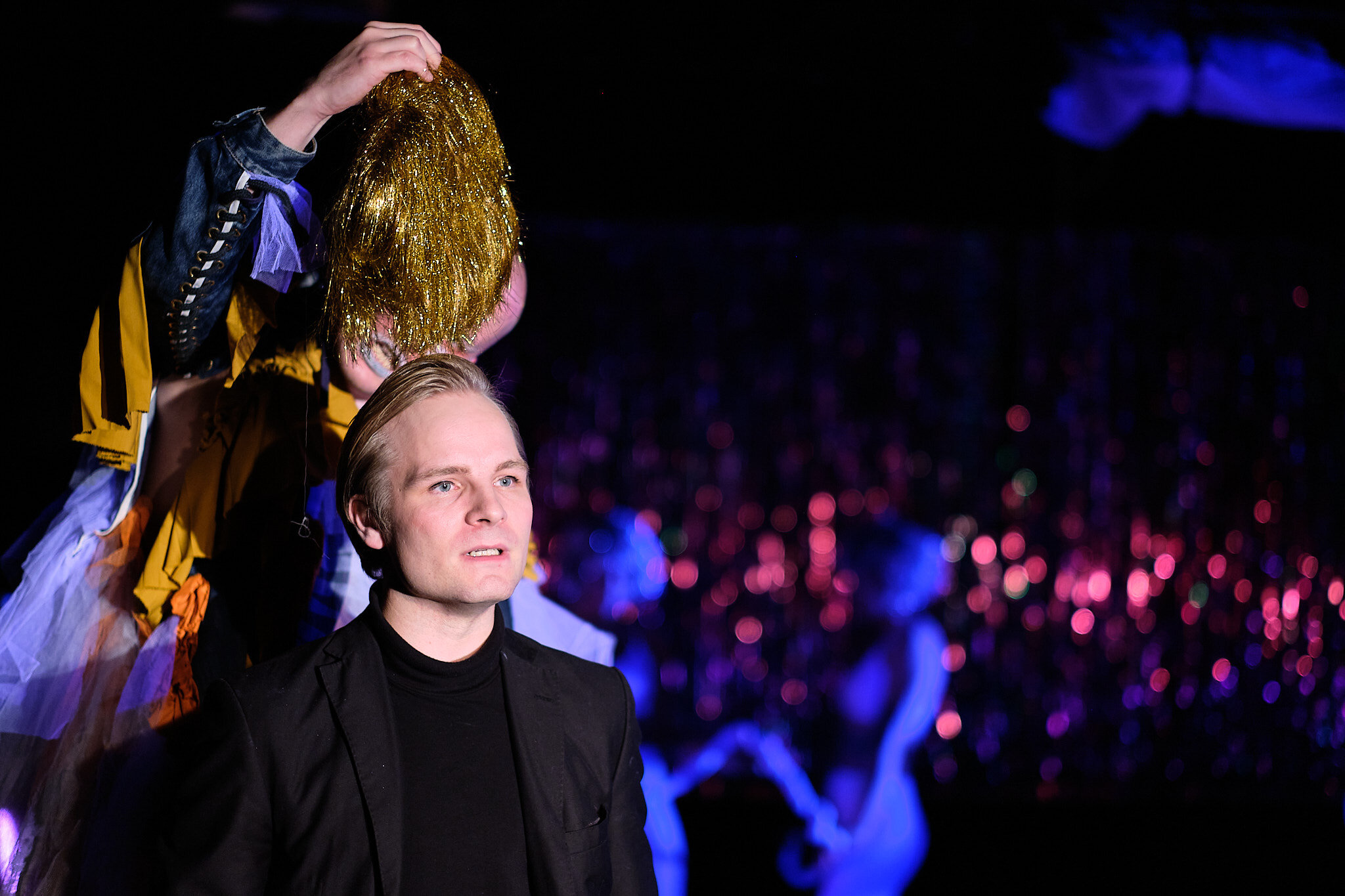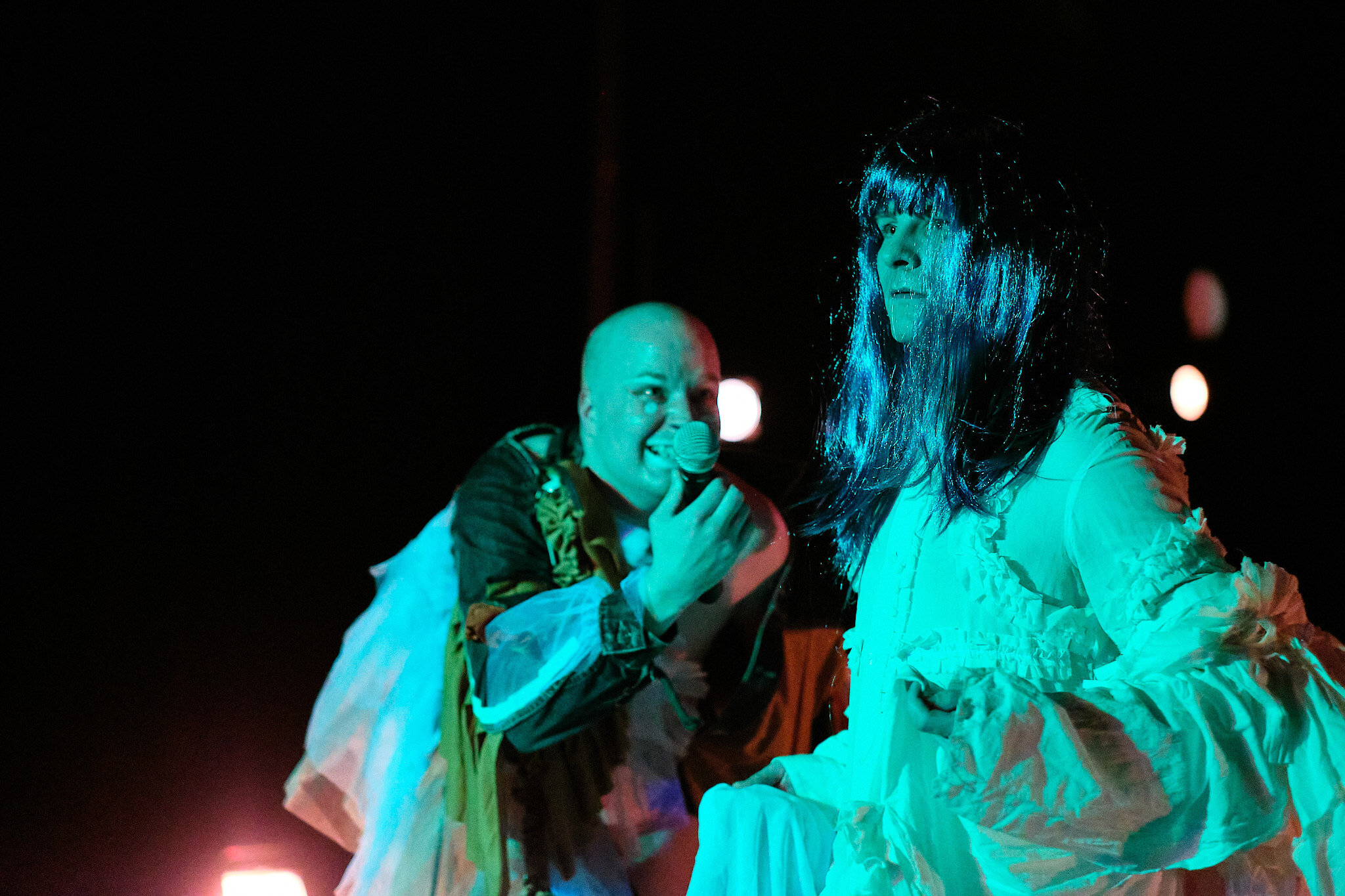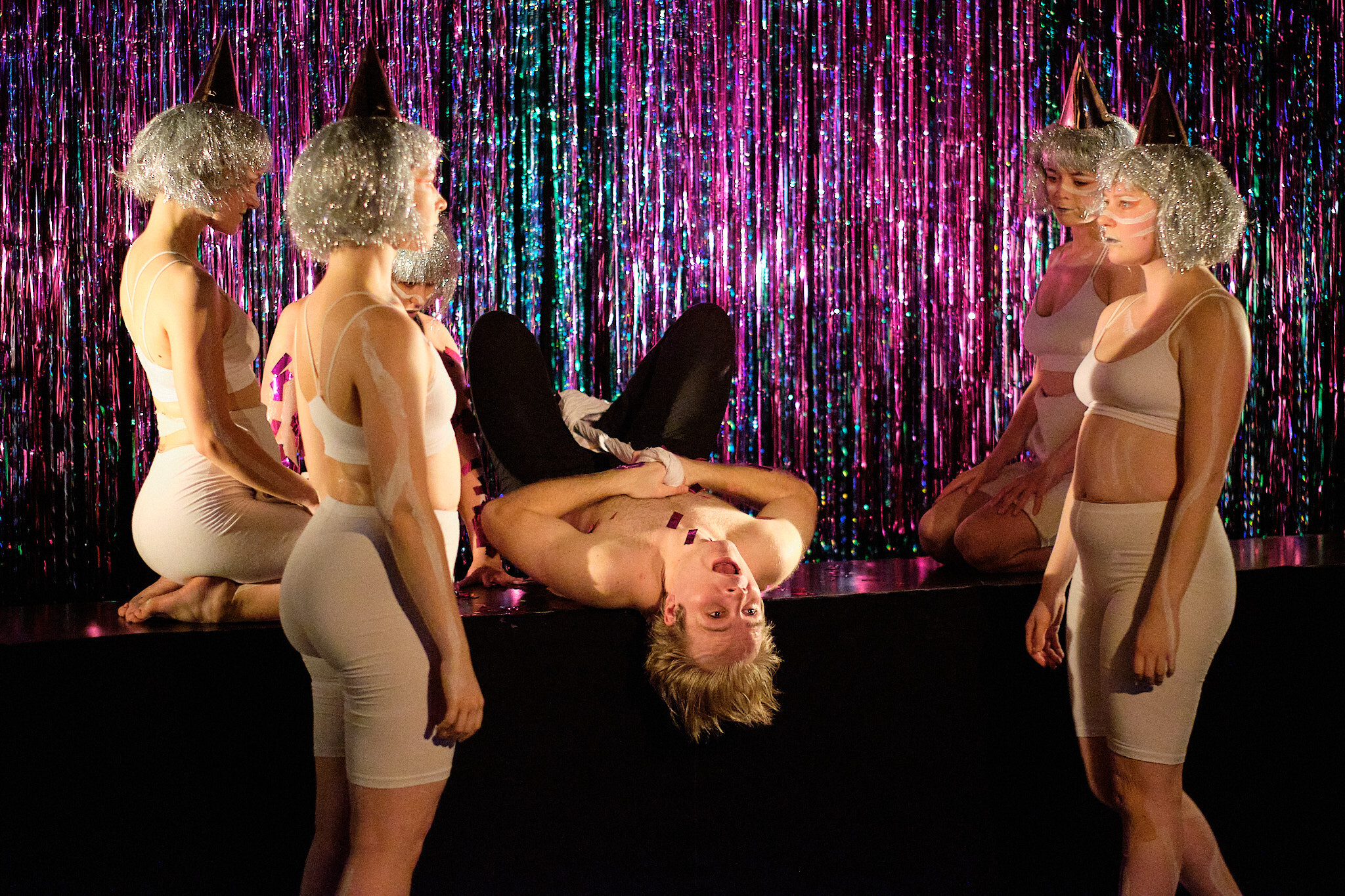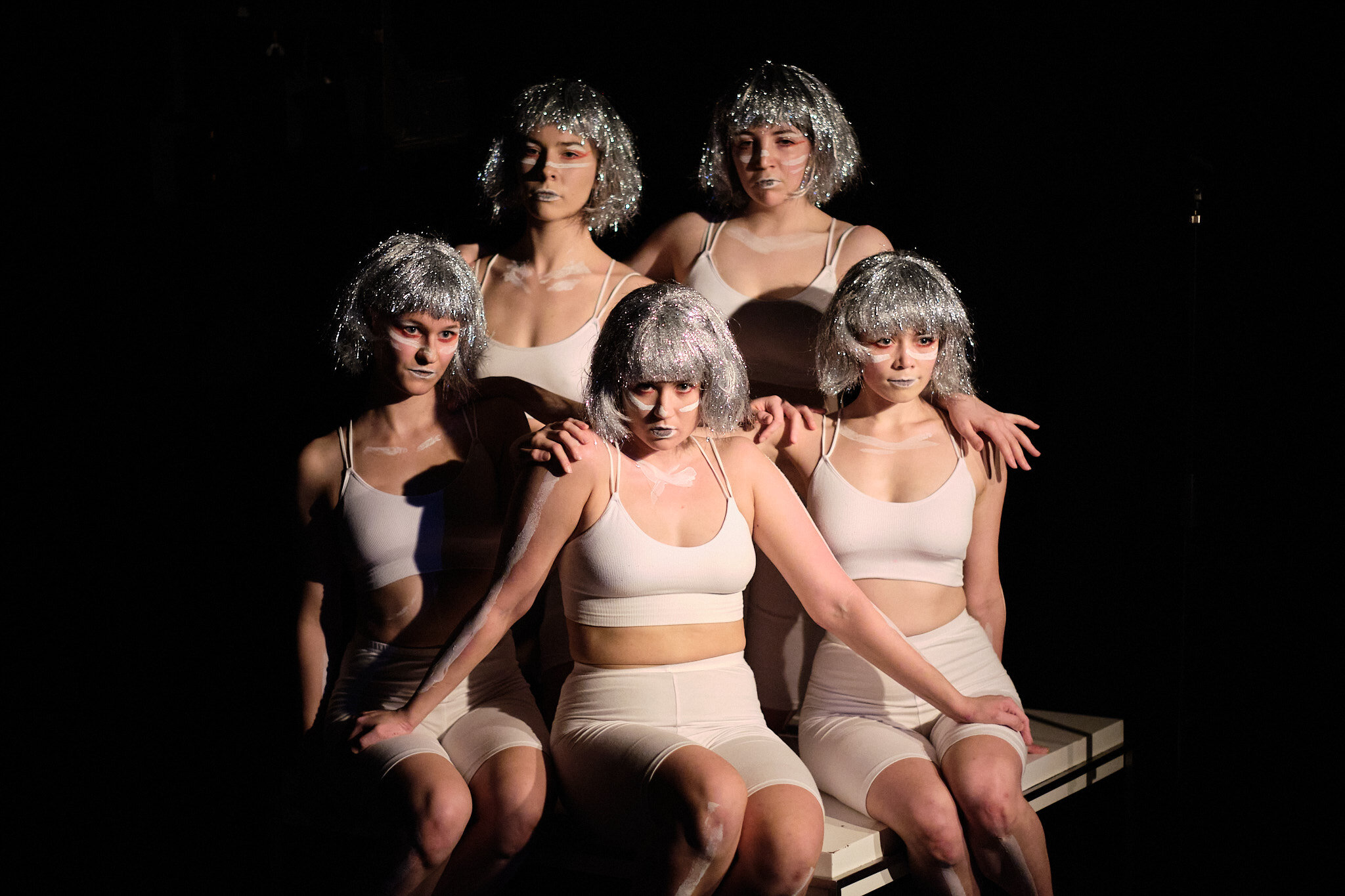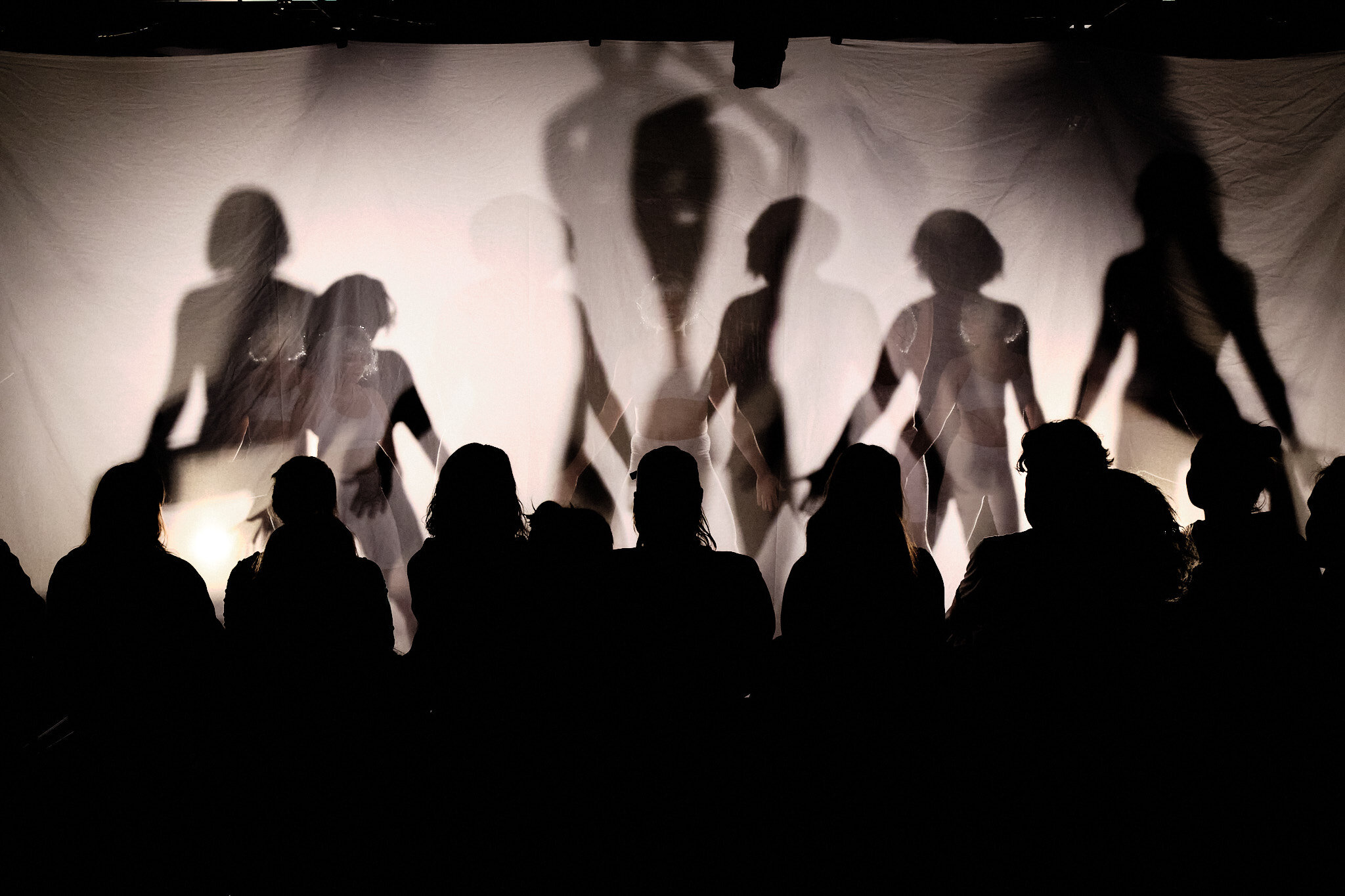All photos by Constantin Gindele.
Dionysia
a divine nightmare
greek tragedy contemporized
Dionysia is a contemporised take on Euripides’ tragedy The Bacchae. In Dionysia, the story of Dionysus’ revenge against the people of Thiva is re-imagined into a magic show filled with showmanship, burlesque, confetti… and violence.
To the source
Western theatre tradition is built on Ancient Greek theatre. But before any form of theatre had taken shape, it was preceded by fertility rites and festivities in the name of the God Dionysus. Working on The Bacchae was like going back to the roots of our art form. In the play, Dionysus appears in the flesh alongside his worshippers, who are depicted dancing and singing in honor to him, running amok in a trance-like state and causing havoc on the outskirts of the city. Losing their awareness of self, they submerge into a collective state of being where space and time seem to dissolve.
Although centuries separate us from its origins, theatre endures as a ritual that binds both the audience and performers in a collective experience which ideally transcends every individual being and moves towards something timeless and profound.
The possibility of transformation
At the beginning of the process we investigated the themes and characters of the play, as well as ideas for scene staging. In particular, we investigated the nature of Dionysus under many different scenarios. What is the dionysian delirium that grips his followers? How does this dionysian spirit affect an individual, and how does it manifest in our daily lives?
We created an image of an omnipresent force of nature that brings chaos to everything it touches, destroys existing structures and gives room for new growth and creation. It is both the entropy that makes all matter scatter across the universe, and the life that creates order against all odds amidst this inevitable decay. Rotting meat makes fertile ground for the most beautiful forms of mold and fungus to sprout.
Dionysus represents the potential for both construction and destruction: what if I push a fellow pedestrian under a bus? What if I were to crush this tea cup between my fingers? What happens if I sing and dance in public? The constant possibility of transformation, the something that might happen in the blink of an eye and change everything...what happens if I embrace this possibility?
Nobody in the play experiences this transformative power more profoundly than Pentheus. Dionysus makes this patriarch embrace his feminine side, but as soon as he has taken his first steps in his female form, he is brought to slaughter and killed by the delirious Agave, his own mother.
Chorus work
One of the most distinctive features of Greek theatre is the chorus. In Dionysia almost every cast member joins the chorus to portray the followers of Dionysus. The synchronized work of a collective, whether through movement or vocality, gives the chorus the transformative power that Dionysus’ magic show requires.
livestreamed theatre
With Dionysia, we also got to experiment with streaming a theatre show live on Facebook. With the help of Backstage Live, we aired our final show and received well over 1000 views during the 90-minute performance. Though not without its technical hiccups, streaming our last show gave us valuable experience in what it takes to create a livestream, as well as what needs to be considered when crafting a performance that will work for both a live audience and an online one at the same time.
production details
Dionysia - A Divine Nightmare
Original text: The Bacchae
Written by: Euripides
Director: Lars Henning
Conceived, developed and performed by: Henna Mäki-Filppula, Atte Hänninen, Karri Karjalainen, Minna Koponen, Delya Messadi, Ina Raunio, Anna Elisa Reini, Milda Sutkevičiūtė.
Graphic design and trailer: Anja Kajinic
Photography: Anja Kajinic, Constantin Gindele
Production management: Backstage Live - Benjamin Brett, Peter Fredsted and Anja Kajinic
Light and sound tech: Valet Brothers
Performed over six shows on 26.11.-3.12.2020 at Copenhagen International School of Performing Arts. The final show on 3.12. was live-streamed on Facebook.




